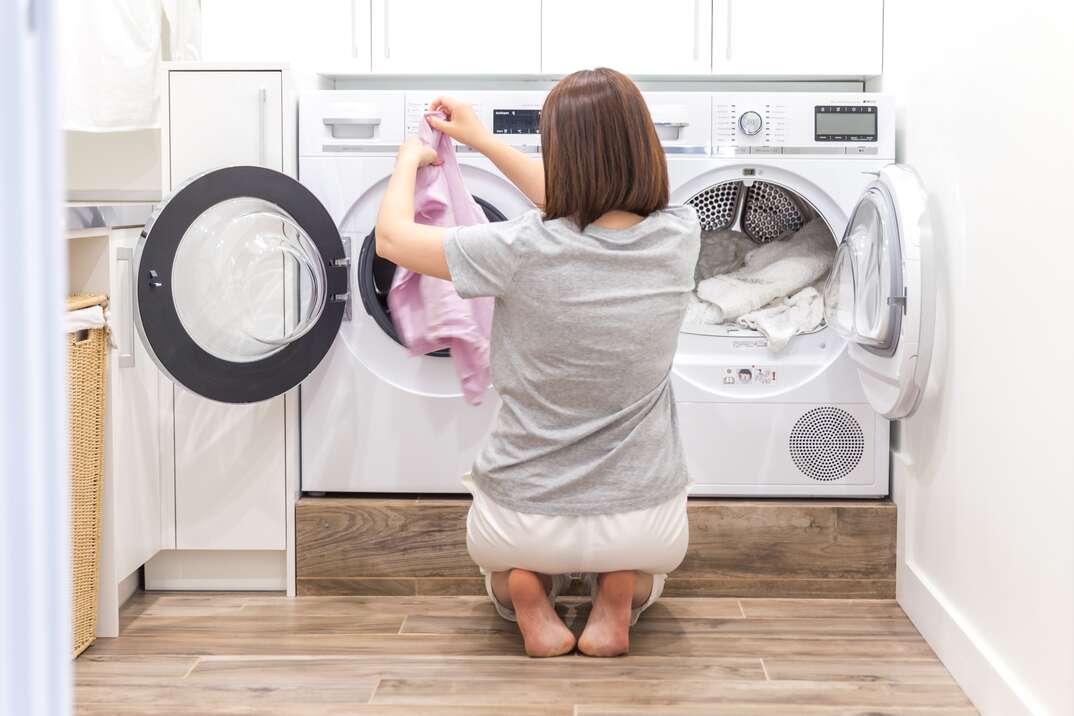Why Isn’t My Washer Cleaning My Clothes?

A malfunctioning washer can be a frustrating experience, especially when it fails to do what it's meant to — get your clothes clean. Several factors can contribute to this issue, ranging from user error to mechanical problems.
Let's look at some common reasons why your washer may not be getting your clothes clean and get you some practical solutions to address these issues. By understanding these potential problems and implementing the recommended fixes, you can ensure your clothes come out fresh and spotless with every wash.
First Things First: Do a Sniff Test
Aside from seeing visible dirt on your clothes after they've been through a washer cycle, you should also give them a sniff to see if they really are getting cleaned. If you smell mold or if there is a strong odor from detergent that didn't get completely rinsed off, then you'll know your machine isn't functioning properly. If that's the case, investigate these issues.
Check Gaskets and Seals
The simplest place to begin when finding out why your washer is failing to get your clothes clean is to look at the gaskets around the area where the door on top of the machine closes. Sometimes, debris, grime, mold or mildew can build up here and find its way into a clean load of laundry. If you spot issues, give the area a good scrub using a paste made of baking soda and vinegar. (Beware the fizzy reaction when you mix these substances initially.) Rinse with water. Run an empty cycle after the cleaning process to make sure the drum is free from the cleaning solution before you wash your next load of laundry.
Incorrect Load Size and Overloading
One of the most common mistakes that can compromise washing performance is incorrect load size and overloading the machine. Overloading prevents proper water circulation and agitation, leading to insufficient cleaning. To resolve this issue, make sure to follow the manufacturer's guidelines regarding load capacity. Aim to leave some space for clothes to move freely within the drum. If you have a particularly bulky load, consider dividing it into smaller batches to maintain optimal washing conditions.
Improper Detergent Usage
Using too little or too much detergent can affect the cleanliness of your clothes. Insufficient detergent fails to remove dirt and stains effectively, while excessive amounts can leave residue on your garments. To address this, carefully measure the appropriate amount of detergent recommended for your specific washer and load size. Consider using high-quality detergents suitable for your clothing type and water hardness level. Additionally, periodically clean your detergent dispenser or drawer to prevent clogs or buildup that could hinder proper detergent distribution.
Hard Water Issues
If you live in an area with hard water, the minerals present in the water can interfere with the washing process, leaving your clothes less clean. Hard water can prevent detergent from lathering effectively, reducing its cleaning power. Installing a water softener or using a water softener can help alleviate this problem. Alternatively, adding a water softening agent or using a laundry additive specifically designed for hard water can improve washing performance and get your clothes cleaner.
More Related Articles:
- How Much Does Appliance Repair Cost?
- Should I Get the Extended Warranty When I’m Buying an Appliance?
- Scratch-and-Dent Appliances: What to Know Before You Buy
- Why Does My Dishwasher Smell?
- My Washing Machine Won’t Drain! Here are 3 Ways to Fix It
Clogged or Damaged Filters
Washing machines contain filters that trap lint, debris and other particles during the wash cycle. Over time, these filters can become clogged, impeding water flow and reducing cleaning efficiency. Check your washer's manual for instructions on locating and cleaning the filters. Regularly inspect and clean the filters to ensure proper water flow and optimal washing performance. In case of damaged filters, replace them promptly to prevent further complications and ensure effective cleaning.
Malfunctioning or Worn Components
Sometimes, a washer fails to clean clothes thoroughly due to malfunctioning or worn components. Issues such as a faulty motor, worn-out agitator or malfunctioning water inlet valve can hinder proper cleaning. If you notice unusual noises, vibrations or reduced cleaning performance, it is advisable to contact a professional technician to diagnose and repair the specific problem. Regular maintenance and servicing of your washer can help prevent such issues and prolong its lifespan.
When your washer fails to clean your clothes effectively, it can be frustrating. However, understanding the common reasons behind this issue can help you troubleshoot and fix the problem. By trying the recommended solutions above and performing regular maintenance, you should be able to make sure that your washer consistently provides clean and fresh clothes, making laundry day a breeze.
Out With the Old
If these troubleshooting steps don't work, though, it may be that your machine is simply worn out and in need of a replacement. The general guideline is that washing machines last about 10 years. If your machine's age is in this neighborhood, it probably makes more sense to get a new one than to replace it. In addition to getting your clothes cleaner, a new machine will likely also save you water and energy, which can help you keep more cash in those freshly washed pants pockets!
Elocal Editorial Content is for educational and entertainment purposes only. Editorial Content should not be used as a substitute for advice from a licensed professional in your state reviewing your issue. Systems, equipment, issues and circumstances vary. Follow the manufacturer's safety precautions. The opinions, beliefs and viewpoints expressed by the eLocal Editorial Team and other third-party content providers do not necessarily reflect the opinions, beliefs and viewpoints of eLocal or its affiliate companies. Use of the Blog is subject to the
Website Terms and Conditions.The eLocal Editorial Team operates independently of eLocal USA's marketing and sales decisions.



